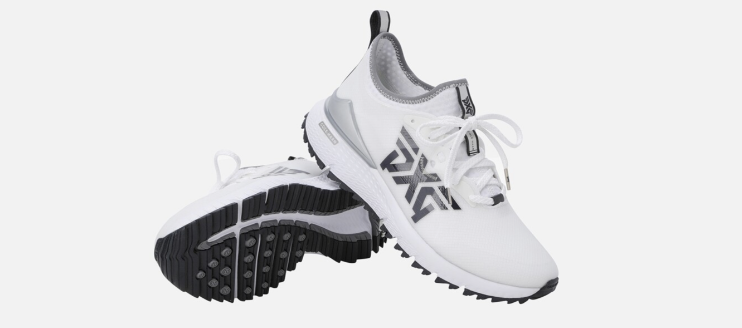New rules may strip shelves bare of imported luxury shoes

The Quality Control Orders (QCOs) for the footwear sector require luxury shoemakers to send their products to the Bureau of Indian Standards (BIS) for Indian Standards Intuition (ISI) certification. Factories making such shoes, irrespective of the global location, also need audits, product checks and the BIS certification.
To allow the industry to exhaust unsold stock, the manufacturers certified by the BIS or those who have applied for certification were permitted to sell, display or offer old stock produced or imported before 1 August until 30 June 2025. The deadline was later extended till 31 July 2026.
Since then, several luxury shoe brands in India are facing delays either in compliances or in receiving the certification status. Many companies, in anticipation of this disruption, had bought a lot of inventory prior to 1 January 2024, but even that is now running out or going out of style.
“Luxury brands are running into stock shortages mainly because they’re either confused about how to tackle the BIS and ISI processes, or they’re unclear about the resources, procedures, and guidelines involved,” said Raahuul Kapoor, founding partner of Delhi-based consultant, Luxury Ampersand Frolics. “It is likely that stocks may not last, unless BIS gives brands more time or they find a way to meet the requirements faster.”
Also read | Part-time relief to French luxury shoemakers; Centre extends QCO implementation
Annual sales of luxury shoes range between 20,000 to 50,000 pairs or even fewer and the BIS process requires the testing equipment to be sent to European and other luxury company factories, followed by on-site inspections from India’s BIS certification officers. That’s causing delays. The associated costs are around ₹50 lakh upfront per shoe category, ₹1.5 lakh annually, and ₹6 lakh in legal fees, plus each shoe that goes into testing gets destroyed.
Companies must pay for each category—including ‘sneakers’, ‘classic’ or ‘formal’ shoes. While luxury brands primarily rely on local partners to operate in the country, they have to invest to get the testing equipment at their headquarters.
While this has increased compliance costs, the slow pace of approvals has disrupted supply chains for many, leaving inventories nearly exhausted.
“While the BIS initiative is a great step toward promoting ‘India Made’ products and self-reliance, it would have been better to first offer subsidized training for international luxury brands and help educate local factories, assembly units, and partners before enforcing new standards,” Kapoor said.
Also read | Italian luxury shoe brand Santoni to expand presence in India
A senior government official, speaking on the condition of anonymity, said the process of issuing licences is underway and that they can only be granted after strict adherence to all norms outlined in the ‘Quality Control Order’ issued by the Department for Promotion of Industry and Internal Trade (DPIIT).
Queries emailed to DPIIT secretary Amardeep Bhatia, BIS director general Pramod Kumar Tiwari and spokespersons of the consumer affairs ministry, BIS and DPIIT remained unanswered till the time of going to the press.
Receiving the certification takes about 6-8 months, said Ankur Jain, managing partner at Noida-based Treslaw, which is working with about a dozen luxury businesses here to help secure certifications.
“A lot of luxury companies made their representations to the government to remove luxury shoes as a category from going through a BIS certification but the government indicated that the rule applies to all including domestic companies,” he said. “While all these companies are complying with the ruling, since August many have not been able to import their goods because the certifications are still in the works.”
Also read | Luxury sales soar as affluent Indians splurge
While there is thin footwear inventory across many luxury brands, according to Jain, the industry is hopeful they will start to receive the paperwork soon to restock their shelves.
Still, brands do fear a significant drop in sales in the January-March 2025 quarter if approvals aren’t expedited. The threat of an impending GST hike to 10% on shoes next year could further add pressure to profit margins.
“Santoni Italy applied to get BIS hallmarking status some months ago and we expect to get it by March 2025,” said Sanjay Kataria, the India franchisee of Italian bespoke shoe company which is expanding its presence in the country. “Since this is peak season, we’ve seen strong sales in the last two months and could be faced with a situation where our popular shoes may run out before the hallmarking status comes through. Luxury shoes could have been kept out of this ruling as far fewer pieces are sold per annum.”
The company has a luxury boutique in Delhi’s DLF Emporio mall.
Luxury lifestyle brand Louis Vuitton could also run out of shoes soon, according to people aware of the matter. The company’s Indian unit did not respond to Mint‘s emailed questionnaire.
And read | Following a sluggish summer shopping period, luxury companies pin their hopes on winter and wedding shopping
The CEO of a Florence-based luxury shoe company, which recently set up shop in India, said, “I understand it (new rules) has been done to protect against cheaper, fake products or illegal imports. But it is very complicated in the luxury shoes business because of the lack of volumes being sold.”
“We have to buy the machines to do all the testing in our manufacturing unit back in Europe,” he said while speaking anonymously. “It’s really sad that the government is not distinguishing between luxury and other price points or identifying some countries of origin like the European Union, which could be removed from this list.”
link





